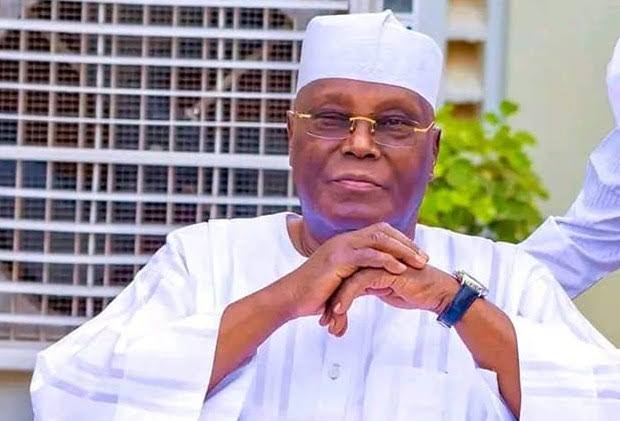Who is Atiku Abubakar: What you didn’t know
Atiku Abubakar was born in 1946, in Jada Adamawa state of Nigeria. He was the only son of his parents, Garba Abubakar and Aisha Kande. His father a Fulani trader and farmer tried to leave his son with a good legacy as an entrepreneur, however, when Atiku was 11 years old, Malam Garba died. Atiku took the responsibility to support his mom at a very young age.

Early life
The same year Nigeria got its independence, Atiku graduated from his primary school education 1960. With the responsibility of taking care of his family in mind, Atiku at a very young age understood the values of education; hence he immediately joined a provincial secondary school and graduated after completing his WAEC.
Following his secondary education, Atiku proceeded to the Nigerian police college in Kaduna; however, he needed to support his mother. Hence he had to leave the police college for a position as a tax official in the regional ministry of finance. Atiku had his diploma in 1967, and on a scholarship, he studied law at ABU Zaria. Atiku joined the Nigerian customs service during the Biafra civil war and continued to pursue his career as a customs officer.
The odds were almost entirely against Atiku; however, he prevailed from all obstacle after persevering and hard work. Firstly, Atiku was born before Nigeria’s independence from Great Britain, he had to endure pressure from every circumstance to get an education, he became an orphan at an early age of his life, but that did not deter him from pursuing his career and supporting his family.
Early Investments
Atiku has been interested in trade since the early stages of his life, during the military rule of Yakubu Gowon, Atiku took a loan to invest in real estate, he spent so much in real estate in Yola. Following his boom in real estate Atiku decided to diversify to other aspects of business, he moved to agriculture, however, the time was not right for agriculture as the company did not survive much longer.
Following the failure of the first agriculture investment, Atiku then sets up another enterprise with his partner, a logistics company operating within the port of Apapa in Lagos. The business generated so much revenue to Atiku, as any businessman in Nigeria, several accusations plagued Atiku’s investment in the company as illegal. However, Atiku cleared himself by providing evidence that it was actually permitted and encouraged by the Nigerian government at that time. In the years, Atiku moved on to establish several businesses across Nigeria, including beverages, agriculture and Animal Feeds.
Political Life
Atiku retired from Customs and committed himself to business and politics on a full-time basis. He ran for the office of governor in the then Gongola state which comprises of present-day Adamawa and Taraba states in the year 1991. However, the Ibrahim Babangida regime did not allow the election to count. Atiku did not give up, in 1993, He contested for the presidency again and came third in the primary election of the Social Democratic Party (SDP) behind Chief MKO Abiola and Babagana Kingibe. Yet the polls were annulled by the Babangida regime. One thing is common in all these Atiku doesn’t see these setbacks as an obstacle to hinder his ambition. He learns from them and take lessons and finds ways to come back better and stronger.
He became Vice-president of the country in 1999 and served until 2007.
In 1998, Atiku won the gubernatorial seat of Adamawa state, however, before he was sworn in as the governor, Obasanjo invited him to run together with him as a presidential running mate under the PDP. They won the seat 62.8 per cent of the vote and governed Nigeria until 2007 as they ran for the second term in office in 2003 and won.
Atiku is someone who always wants the best and a competitor when it comes to achieving success. During their second term in office, Atiku’s ambition to succeed the president proved abortive as he was involved in a bitter public battle against former president Obasanjo’s bid to amend the constitution for a third term. Atiku deemed the change as unconstitutional and bad for Nigeria’s democracy. Obasanjo, on the other hand, lined several lies and accusation against Atiku without any evidence to prove those allegations. Ever since then Atiku has been nursing the ambition to take the top seat of the country.
“Obasanjo informed me that ‘I left power twenty years ago, I left Mubarak in office, I left Mugabe in office, I left Eyadema in office, I left Umar Bongo, and even Paul Biya and I came back, and they are still in power; and I just did eight years and you are asking me to go; why?’ And I responded to him by telling him that Nigeria is not Libya, not Egypt, not Cameroun, and not Togo; I said you must leave; even if it means both of us to lose out, but you cannot stay.”
Atiku Abubakar
Presidential Race
In 2007 elections, Atiku was among those who contested for the highest office in Nigeria, under the action Congress party (AC). However, he came third behind Umar Musa Yar Adua of the PDP, Muhammadu Buhari of the APC.
In the midst of all these Atiku’s urge to support quality education in Nigeria, He established one of the best universities in the country in Yola, as he was eager to allow Nigerians to benefit from the American system of education, through problem-solving, small classes and critical thinking. He offered several scholarships and supported thousands of children to attend the basic needs of a school.
Atiku has been campaigning for a true federalism system of government, where states and local government will take responsibilities of the subject without depending on the federal government. Hundreds of thousands of Nigerians who knew what a true federal system is, support Atiku’s call. He moved from AC back to the PDP in during the 2011 elections; however, he lost the presidential ticket to the incumbent Goodluck Jonathan.
Atiku still continued his campaign for a true federal system. Atiku stated that the Nigerian economy needed someone with financial experience such as his, to battle the current situation in the country.
In 2018, Atiku became the presidential candidate of the PDP again after resolving his issues with the party. His manifesto for the 2019 election calling on Nigeria to come together and make Nigeria work again.
In 2022, He became the presidential candidate of the People’s Democratic Party still calling on Nigerians to come together as one which earned him the title: The UNIFIER. So many Nigerians strongly believe in him as the Unifier of Nigeria Politics.
